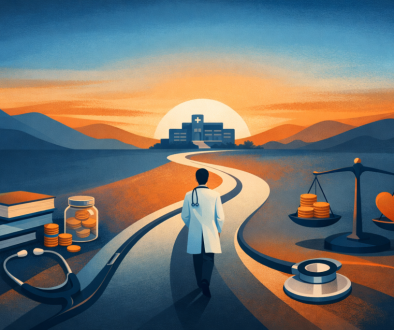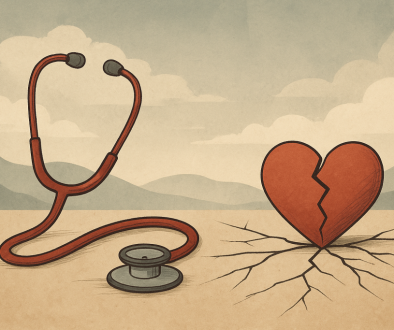The Transformative Journey of Medical Education: A Guide for First-Years
Welcome, first-year medical students, to the beginning of your extraordinary medical education journey! As an experienced physician and medical educator, I am thrilled to guide you through the transformative experience of medical education. You are embarking on a path that will shape your professional identity and profoundly impact your personal growth.
The Essence of Medical Education
Medical education is a transformative journey that goes far beyond acquiring the knowledge and skill necessary to practice medicine. You will witness birth, death, injury, and healing. It’s a process that will challenge you physically, intellectually, emotionally, and spiritually. You’ll evolve from a student into a healer, developing medical expertise, empathy, resilience, and a deep sense of responsibility.
Understanding the Modern Hippocratic Oath
At the heart of this transformation lies the modern Hippocratic Oath, a sacred pledge that embodies the core values of our profession. This oath, which many of you recited as part of the white coat ceremony, serves as a moral compass throughout your medical career. Let’s explore some of its fundamental principles and how they relate to your medical training:
- Beneficence and Non-maleficence: The oath emphasizes the duty to help patients and avoid harm. During your training, you’ll learn to balance potential benefits and risks in every medical decision, prioritizing the patient’s well-being. Remember, perspective is important. What one person views as a benefit, another may view as harm. Take the time to talk to your patients so they can make informed decision about their medical care.
- Patient Autonomy: Respecting patients’ right to make informed decisions about their care is crucial. Your education will teach you how to communicate effectively with patients, ensuring they understand their conditions and treatment options.
- Confidentiality: Maintaining patient privacy is a fundamental ethical principle. Throughout your studies, you’ll learn the importance of discretion and the legal aspects of patient confidentiality.
- Professional Development: The oath commits physicians to continuous learning and improvement. Your medical education is just the beginning of a lifelong journey of learning and growth. Although medical school focuses on the knowledge and skills necessary to practice medicine don’t forget about the “soft skills”. Physicians are the de facto leaders of medical teams. Work to develop emotional intelligence, communication and leadership skills that will allow to you thrive as a leader.
- Social Responsibility: The modern version of the Hippocratic oath acknowledges physicians’ broader societal role. Your training will prepare you to address not just individual health issues but also public health concerns. Some of you may even choose to focus on public health and forgo traditional medical practice. Keep an open mind
Navigating Challenges in Medical School
As you begin this journey, remember that medical school is not just about memorizing facts and procedures. It’s about developing critical thinking skills, working effectively on teams, and cultivating the compassion and empathy essential to patient care.
You’ll face challenges along the way – the volume of information to learn, the emotional toll of dealing with illness and suffering, and the pressure to perform. But remember, these challenges are part of the process that will shape you into a competent and caring physician. Although it can be hard, focus as much on the journey as on the outcome or destination.
Your first year will be a whirlwind of new experiences. You’ll dive into the basic sciences, develop clinical skills, and start to understand the complexities of the healthcare system. Embrace this time with enthusiasm and curiosity. Every lecture, every lab session, every patient interaction is an opportunity to grow and learn. As you progress, you’ll find that medicine is as much an art as a science. While evidence-based practice is crucial, you’ll also learn the importance of intuition, empathy, and the human touch in healing.
Leveraging Support Systems during your Medical Education Journey
Remember, you’re not alone on this journey. Your classmates, faculty, and the broader medical community are here to support you. Don’t hesitate to reach out when you need help or guidance. In the coming weeks, we’ll explore various aspects of medical education to help you navigate this exciting the next 4 years of your medical training. In my next post, we’ll discuss effective study strategies to help you manage the vast amount of information you’ll encounter.
Welcome to the noble profession of medicine. You’re embarking on a journey that will challenge, inspire, and ultimately allow you to make a profound difference in people’s lives. Embrace the transformation ahead, and remember that every step of this journey shapes you into the physician you will become. I look forward to guiding you through this series. See you next week as we delve into mastering study strategies for medical school!





